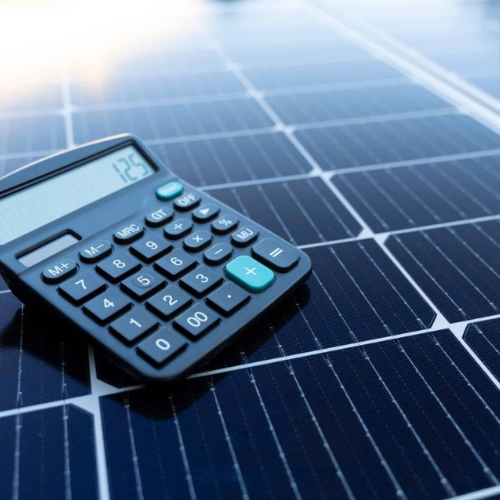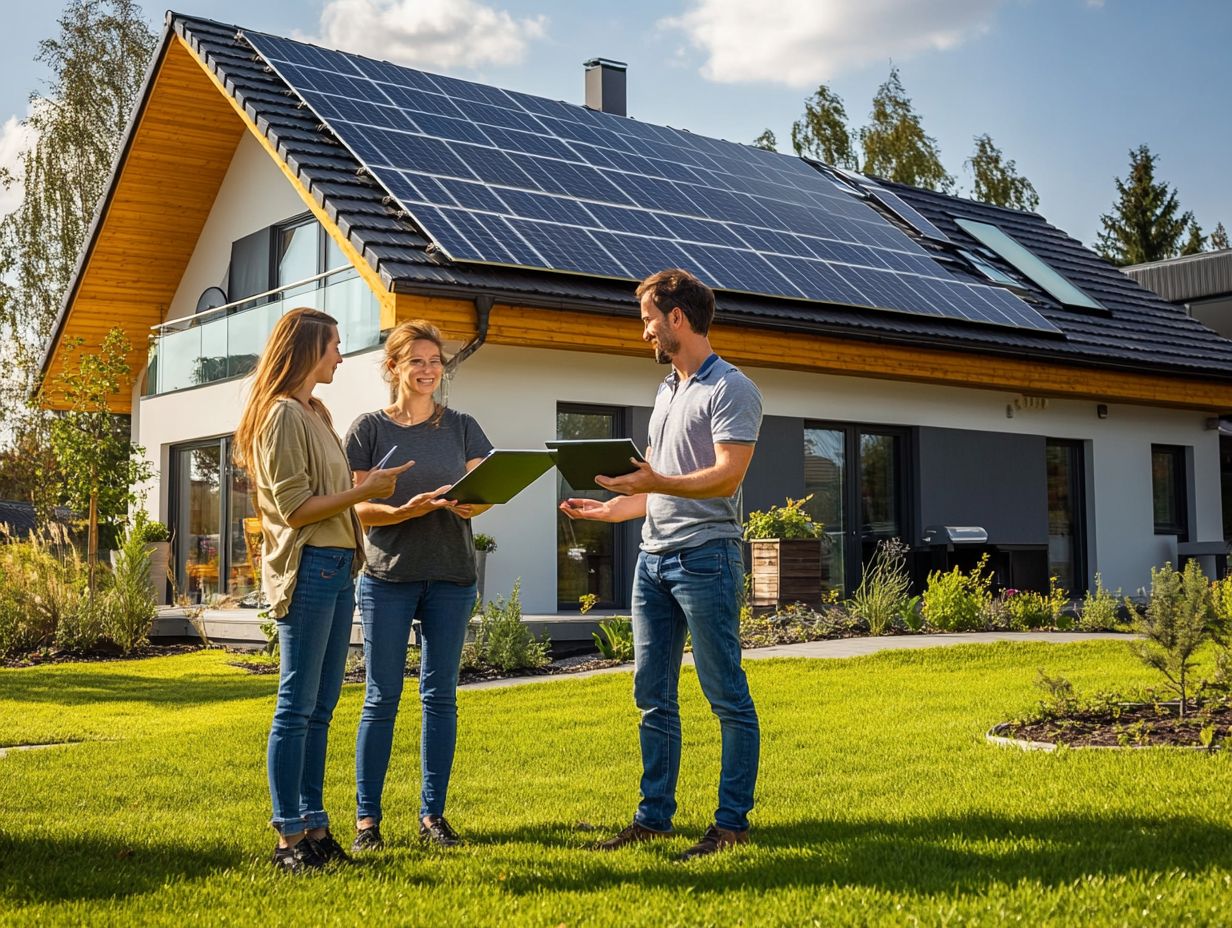Contents
- 1 Factors to Consider Before Installing Solar Panels
- 2 Common Concerns About Solar Panel Installations
- 3 Addressing Concerns and Finding Solutions
- 4 Frequently Asked Questions about Solar Energy
- 4.1 What are some common concerns about solar panel installations?
- 4.2 Are solar panels expensive to install?
- 4.3 How efficient are solar panels and what factors affect their performance?
- 4.4 Do solar panels require a lot of maintenance and what warranties are available?
- 4.5 Will installing solar panels affect the aesthetics and property value of my home?
- 4.6 Can I still use my regular electricity if I have solar panels and what are the grid connection benefits?
Solar panels are becoming a go-to option for sustainable energy, but you might still have some questions about how practical they really are, what kind of impact they have, and the costs involved.
This article breaks down what solar panels are, how they work, and the key factors you should think about before diving into installation. You’ll want to consider things like your location, budget, specific energy needs, and roof suitability.
It also tackles some common concerns you might have about environmental impact, maintenance, efficiency, and technology advancements, giving you the insights you need to navigate these challenges.
You’ll find that consulting with experts, understanding government incentives, and doing your homework can really set you up for a successful solar panel experience.
What are Solar Panels and How do They Work?
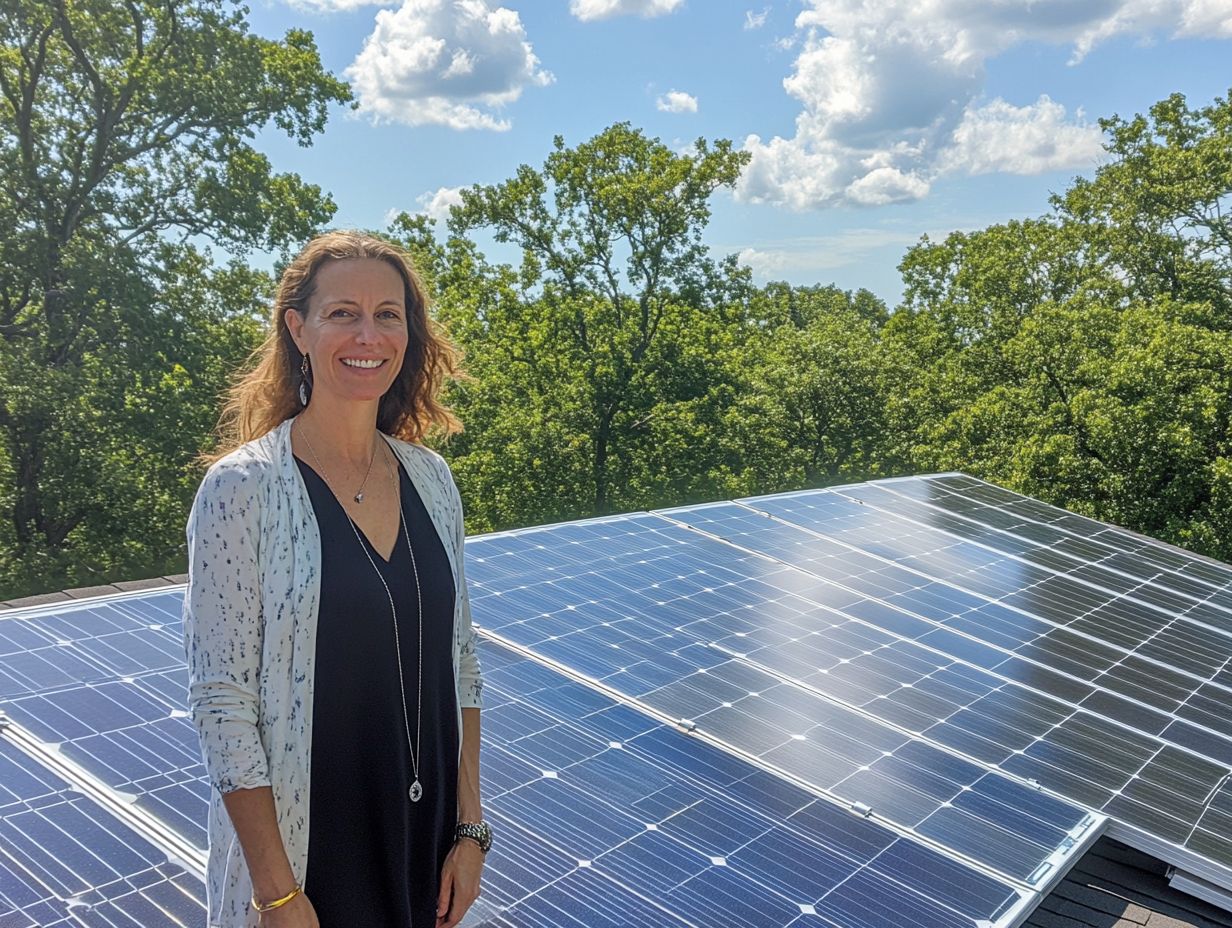
Solar panels are pretty cool devices that turn sunlight into electricity, using photovoltaic cells to effectively harness solar energy.
By adopting these systems, you’re not just boosting your energy independence; you’re also cutting down on those pesky utility bills, improving the overall energy efficiency of your home or business, and potentially increasing your property value.
With technology continuously evolving, solar panels are getting more efficient, offering you sustainable energy solutions that are also kind to the environment and contribute to fossil fuel reduction.
The way these photovoltaic cells work is actually quite fascinating. They soak up photons from sunlight and convert them into direct current electricity through something called the photovoltaic effect.
You can use this electricity right away, store it in batteries for later, making battery storage a vital part of solar energy systems, or even feed it back into the grid for energy credits.
The installation process has also become a breeze, often handled by qualified installers who assess your location, the angle of your roof, and the type of panels that would work best for your specific situation.
By tapping into solar energy, you’re not just making a smart choice to lower your carbon footprint; you’re also utilizing a renewable resource that can significantly reduce your reliance on fossil fuels and improve your energy security.
Factors to Consider Before Installing Solar Panels
Before you dive into the world of solar energy systems, it’s important to think about several factors that can really impact your installation process, overall satisfaction, and return on investment.
You’ll want to evaluate the cost of solar energy, check if your roof is compatible, understand local regulations, explore financing options, and consider potential hidden fees. Each of these elements plays a crucial role in the success of your solar panel installation.
Taking the time to research these factors will help you make informed decisions that can maximize your long-term savings and environmental benefits.
Assessing Your Location, Budget, and Energy Requirements
When you’re thinking about solar panels, it’s super important to evaluate your location, budget, and energy needs if you want to get the best performance from your solar energy system.
The area where you live plays a big role in how much solar energy you can harness, while your budget will affect how you size your system and the financing options available to you.
By getting a good grasp on your energy needs and taking advantage of local incentives, you can set yourself up for a solar installation that maximizes your return on investment.
Conducting an energy audit is a must-do step that helps you figure out your consumption patterns, spot opportunities for saving energy, and assess the ideal system size for your needs. A well-sized solar system that aligns with your energy demands can really boost efficiency and cut down on waste.
Plus, local incentives like tax credits and rebates can make a huge difference by helping to offset those initial costs and making solar energy more accessible.
By putting all these pieces together—analyzing your location, budgeting thoughtfully, conducting energy audits, and understanding local programs—you can craft a personalized solar strategy that not only meets your energy needs but also helps contribute to a more sustainable future.
Common Concerns About Solar Panel Installations
Even though solar panels come with a ton of benefits, it’s normal for you to have some common concerns during the installation process and afterwards, such as the aesthetics and potential noise issues.
You might find yourself wondering about maintenance issues, how to monitor performance, or what the environmental impact really is. Plus, you could be dealing with the potential shadowing effects from nearby buildings, orientation, or climate considerations.
Don’t forget, solar panel warranties are a big deal when it comes to tackling these concerns. They help ensure that you feel secure in your investment, allowing you to kick back and enjoy the long-term perks of your solar energy system, such as energy savings and increased home value.
U.S. Department of Energy (DOE). (2022). Solar Energy Technologies Office: FAQs. Link
Environmental Impact and Maintenance
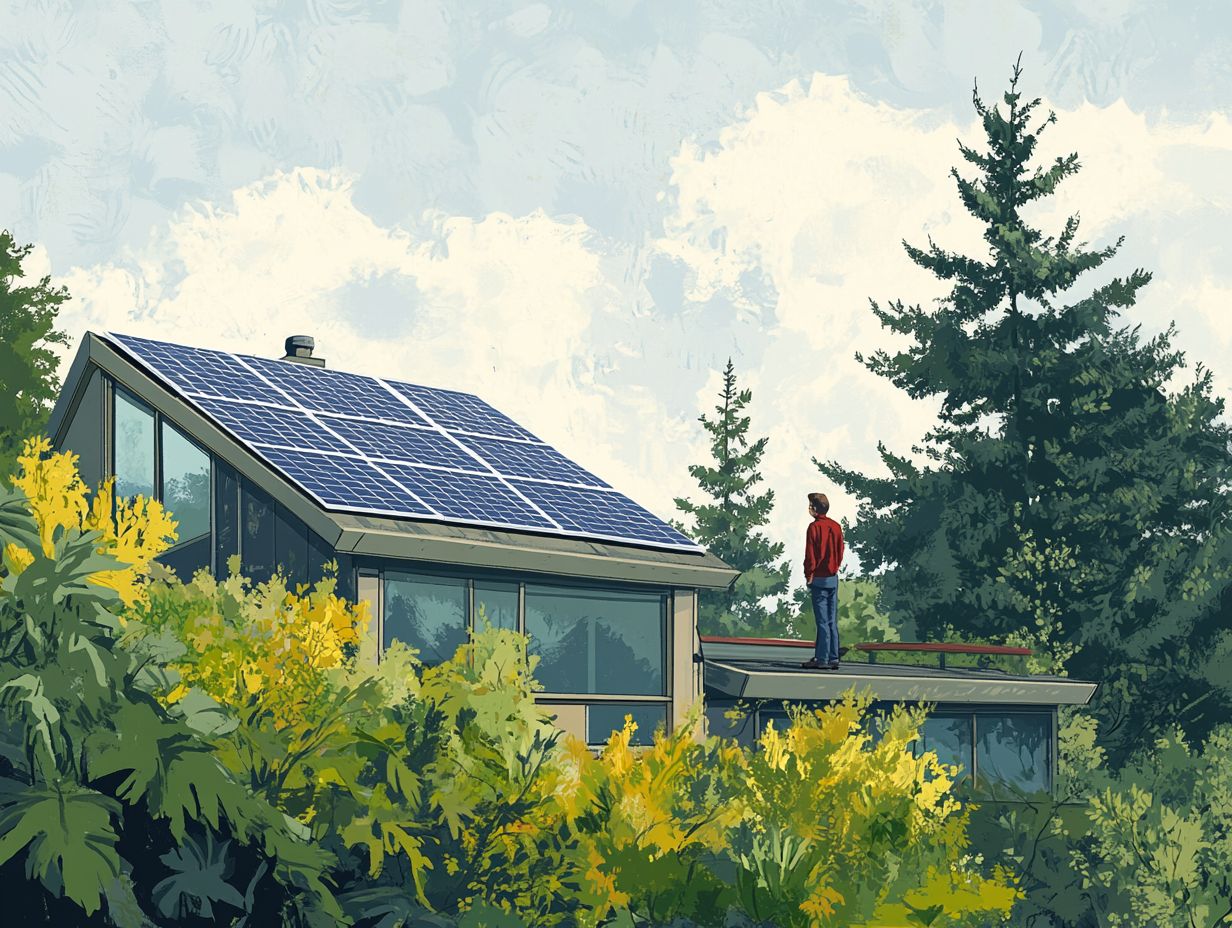
Solar panels can really make a positive impact on the environment by cutting down your reliance on fossil fuels, but it’s important for you to understand their ecological effects, maintenance needs, and durability as a homeowner.
When you invest in solar energy, you’re tapping into clean power that not only helps lower your utility bills but also reduces carbon emissions, making the planet a healthier place.
The efficiency of your solar system is closely linked to how well you maintain it. Keeping up with regular maintenance ensures you’re getting the most energy production possible, thereby maximizing energy efficiency.
Plus, with advanced solar technology, you can simplify the process through real-time performance monitoring. This lets you easily spot and fix any potential issues that might pop up, ensuring the reliability of your system.
Taking this proactive approach not only boosts your energy output but also enhances the overall sustainability of your solar system, ensuring that you enjoy those long-term benefits for both yourself and the environment.
Reliability and Efficiency
The reliability and efficiency of solar panels are super important when it comes to your overall satisfaction with solar energy systems.
Thanks to ongoing advancements in solar technology, you can enjoy improved efficiency ratings, energy monitoring tools, and performance tracking that help ensure your system runs at its best.
These cool innovations let you track energy production in real-time and even send you alerts if there are any system hiccups, which helps keep downtime to a minimum.
Plus, the ability to upgrade your system means you can easily integrate newer technologies that can really amp up the performance of your existing panels.
As all these factors come together, you’re in a great position to enjoy some serious economic benefits, like lower electricity bills and increased home value. In the long run, this translates to savings and a boost in your energy resilience.
Regulations and Permits
Navigating the regulatory landscape is super important when you’re installing solar panels because local regulations and permits can really impact your project timeline and costs.
You’ll want to get a good grasp on zoning laws and secure those necessary installation permits, especially if you live in areas with strict homeowner associations or specific insurance requirements.
Safety considerations should also be taken into account to ensure a smooth installation process.
By staying proactive and informed about the regulations, you can make the installation process smoother and ensure you comply with local laws.
Regulations may dictate the types of solar systems permitted, influencing your equipment and design choices. Homeowner associations often throw in their own guidelines, making things a bit trickier.
You might need to submit proposals for approval before you can even start your installation. Understanding the legislative framework is crucial for a seamless installation process.
Delays in getting those approvals can stretch out your timeline. This may also affect any financial incentives or rebates you hope to secure.
So, getting familiar with these local nuances not only helps everything go more smoothly but also gives you the power to make informed decisions throughout your solar panel installation journey.
Addressing Concerns and Finding Solutions
Regarding concerns about solar panel installations, you’ll want to take a proactive approach. This means consulting with experts, understanding solar incentives, and diving into some homeowner education.
By gathering feedback on installations and busting those common myths about solar, you can navigate any potential issues and find effective solutions. Plus, engaging with your community is key.
It helps create a supportive environment for adopting solar energy, making sure you feel empowered to make informed decisions about your solar energy system.
Consulting with Experts and Doing Research
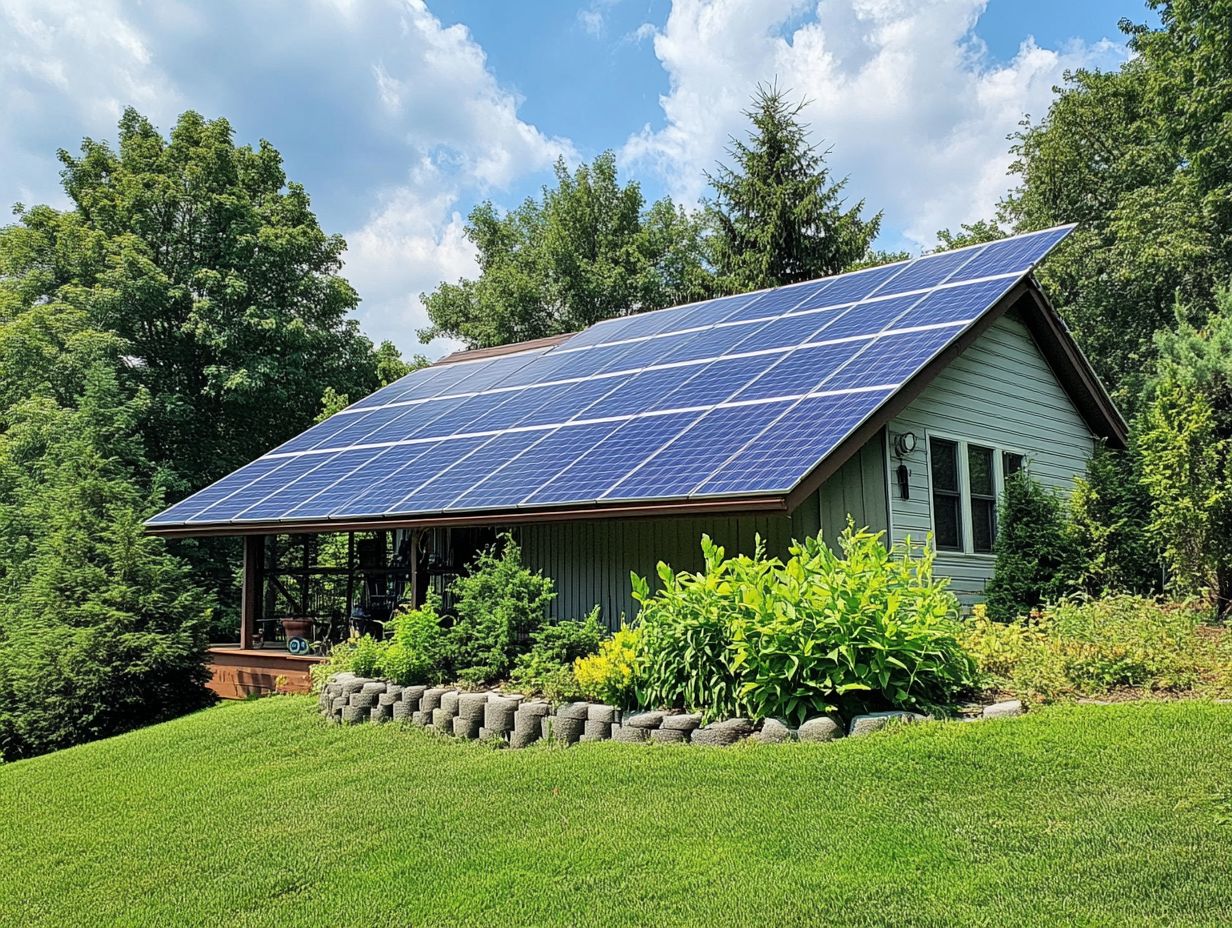
When you’re thinking about installing solar panels, it’s super important to chat with qualified installers. They can give you the best advice that fits your specific needs, helping you navigate the installation process and financing options.
Doing a little digging into the reputation of these installers and checking out community solar programs can also help you discover local incentives that might be available. This way, you can make informed choices about your solar energy system, such as understanding the potential payback period and cost savings.
These pros can perform energy audits to see how much energy your home uses and recommend the right system size and configuration for you.
Plus, by taking advantage of available rebates or tax credits, you can significantly cut down on your initial investment costs, enhancing your return on investment.
Doing thorough research not only boosts your understanding of financing options but also lets you compare different products and warranties.
In the end, working with experienced installers makes for a smoother installation process and helps you tap into some serious savings while maximizing your investment in renewable energy, ultimately contributing to a successful energy transition.
U.S. Department of Energy (DOE). (2021). Solar Energy Technologies Office: Funding Opportunities. Link
Frequently Asked Questions about Solar Energy
What are some common concerns about solar panel installations?
Some common concerns about solar panel installations include the initial cost, efficiency, maintenance, potential hidden fees, potential impact on the aesthetics of your home. Additionally, concerns about environmental impact and sustainability are also common.
Are solar panels expensive to install?
Initial installation costs can vary, but understanding financing options and government incentives can help make solar panels more affordable.
The initial cost of solar panel installations can seem expensive, but the long-term energy savings on utility bills, potential tax incentives, and government incentives can offset the cost.
Additionally, financing options and rebates are available to make the costs more manageable over the payback period.
How efficient are solar panels and what factors affect their performance?
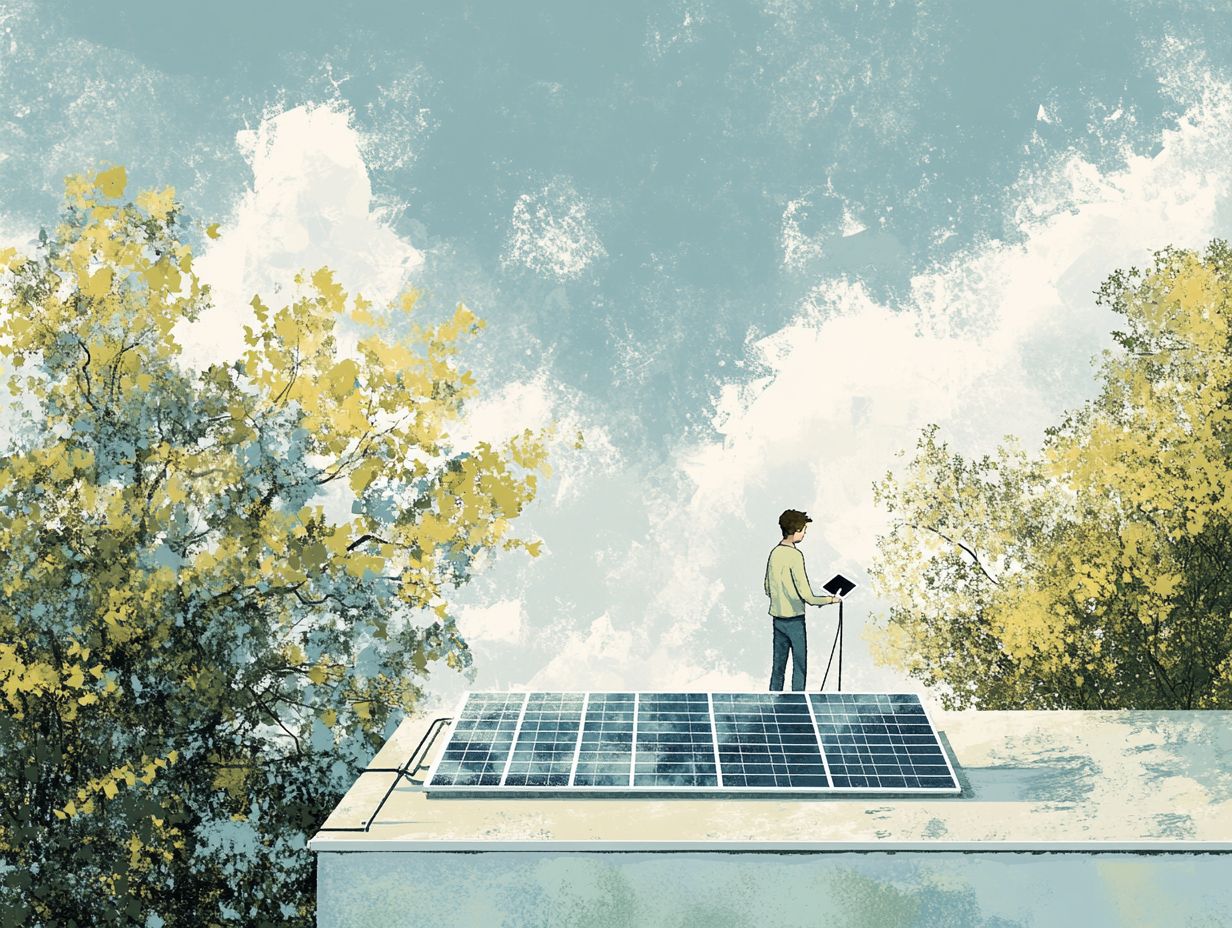
Solar panel efficiency varies depending on the panel types, quality of the photovoltaic cells, and the amount of sunlight in your location. On average, solar panels can convert about 15-20% of sunlight into electricity, with higher-end panels reaching up to 25% efficiency. Technology advancements are continually improving these rates.
Do solar panels require a lot of maintenance and what warranties are available?
Solar panels require minimal maintenance due to their static nature and robust design, making them capable of withstanding various weather conditions. Occasional cleaning and an annual inspection by a professional are recommended to ensure optimal performance and reliability.
Manufacturers often offer warranties that cover the durability and performance of the panels over the long-term commitment.
Will installing solar panels affect the aesthetics and property value of my home?
Solar panels can be installed in various ways to minimize their impact on the aesthetics of your home. Some options include flush mounting, placing panels on less visible parts of the roof, or using solar shingles to blend in with the rest of your roof.
Properly executed, solar installations can even enhance the property value and home value due to the added benefits of energy savings and renewable energy usage.
Can I still use my regular electricity if I have solar panels and what are the grid connection benefits?
Yes, you can still use your regular electricity from the grid if needed. Solar panels work in conjunction with the grid, allowing you to use solar energy when it is available and switch to the grid when it is not.
In some cases, you may even be able to sell excess solar energy back to the grid, enhancing your energy independence and providing potential energy credits. Additionally, battery storage systems can be installed to store excess energy for later use.


